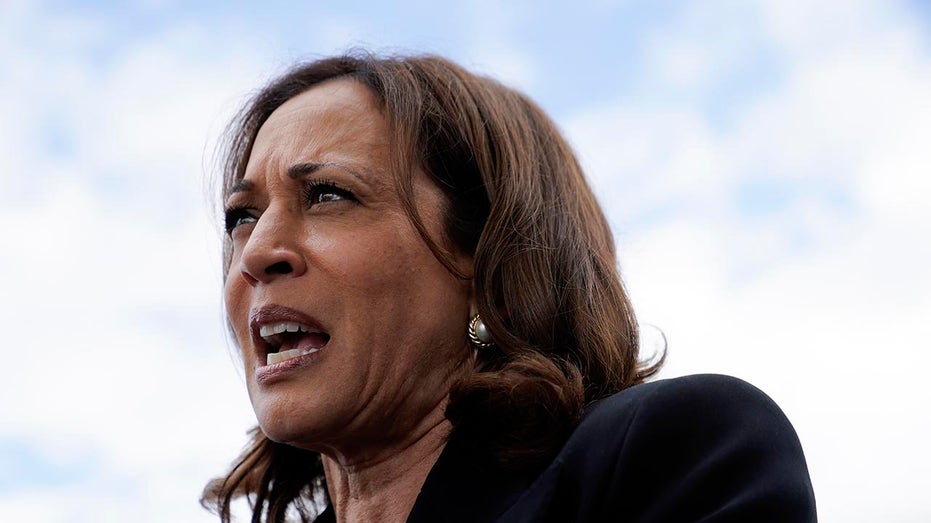We don’t know whether Vice President Kamala Harris or former President Trump will win the White House this fall.
But there are two things we do know:
The 2024 presidential election is likely to be tight. And regardless of the victor, Harris will co-preside over her victory or defeat when the House and Senate convene a joint session of Congress to certify the Electoral College results on Jan. 6, 2025.
She’s required to do so.
FOX NEWS POLL: CLOSE RACES IN BATTLEGROUND STATES SHOW VOTERS LOCKED IN
The House and Senate are the quadrennial arbiters of the electoral vote on Jan. 6. That’s why the date was so controversial four years ago. It devolved into a riot and emerged as one of the ugliest days in American history. What was usually a sleepy, ceremonial affair on Jan. 6 to tabulate and sign off on the electoral vote emerges forevermore as a major national security event – along the lines of State of the Union. And like it or not, possible controversy over the certification process next Jan. 6 likely gains momentum by the fact that Harris is the presumptive Democratic nominee and will be on the dais for her defeat or victory.
This scenario is just another radiating political isotope, augmenting our already unsteady political climate. It doesn’t help matters that Jan. 6, 2025, will be the first time Congress has met to certify the Electoral College since the mayhem of almost four years ago. That’s augmented by the fact that Trump stands to either officially win or lose on that day, too.
The vice president presides over joint sessions of Congress alongside the speaker of the House. Under the Constitution, the vice president also serves as president of the Senate – the only leader mentioned in the Constitution when it comes to the Senate. Joint sessions of Congress are special parliamentary events. Congress only convenes in such a conclave for the president’s State of the Union address and to certify the Electoral College results.
Vice presidents sometimes duck joint meetings of Congress (note the slight difference). They look the same, but aren’t. Both bodies of Congress assemble in the House chamber for a joint meeting. Those circumstances are reserved for lawmakers to receive a foreign dignitary. Notably, Harris did not preside over a joint meeting of Congress for Israeli Prime Minister Benjamin Netanyahu last month.
However, the speaker of the House always presides as the lead figure of that body – and the constitutional officer of the legislative branch of government.
We don’t know who will appear alongside Harris on the dais for the Electoral College certification next year. That hinges on which party wins the House. Under the Constitution, the new Congress starts Jan. 3 at noon and must first elect a speaker. It will likely either be House Speaker Mike Johnson, R-La., if Republicans retain control. If Democrats flip the House, expect them to tap House Minority Leader Hakeem Jeffries, D-N.Y., as speaker.
The certification of the electoral vote falls on Jan. 6 by design. That gives the new Congress a few days to prepare after it begins on Jan. 3. Moreover, Congress is tasked with certifying the election on Jan. 6 so there’s ample time to prepare for the inauguration of the president: noon on Jan. 20.
It’s not unheard of for a vice president with skin in the game to preside over the Electoral College certification joint session of Congress. Vice President Richard Nixon presided over his own re-election alongside President Dwight Eisenhower in the January 1957 joint session. Nixon was also vice president for the January 1961 session, watching himself lose to President John F. Kennedy. Vice President Hubert Humphrey was the Democratic nominee in 1968. So he co-presided over the joint session in January 1969 when Nixon finally ascended to the presidency.
Speaking of Minnesota, Vice President Walter Mondale chaired the loss of President Jimmy Carter and himself to President Ronald Reagan in the 1981 joint session. Future President George H.W. Bush was on hand for the re-election of Reagan and himself in January 1985. As vice president, Bush then officiated over his own victory aspresident in January 1989. However, things were not as pleasant for former Vice President Dan Quayle four years later. Quayle co-moderated the loss by Bush and himself to President Bill Clinton in the January 1993 joint session.
Vice President Al Gore was on the dais for the re-election of Clinton and himself in January 1997. But Gore found himself in a particularly awkward spot on the dais four years later. Gore presided over his own defeat in 2001 to President George W. Bush, after the election of 2000, one of the most controversial in U.S. history. During the joint session, a parade of members of the Congressional Black Caucus tried to contest the slate of electoral votes from Florida – which Gore famously lost. However, none of the House members had a Senate co-sponsor to challenge the Florida vote.
Rep. Maxine Waters, D-Calif., was one of those pushing for debate on Florida’s electoral voters. Gore asked Waters if she had a Senate petitioner.
Waters replied that she didn’t and that she “did not care.”
Gore famously cut off Waters with a magnanimous line which drew applause.
“The rules do care,” observed Gore.
Vice President Dick Cheney was there for the re-election of Bush 43 and himself in January 2005. However, there was a bona fide challenge to the Ohio slate of electors by Sen. Barbara Boxer, D-Calif., and Rep. Stephanie Tubbs Jones, D-Ohio.
Biden presided for President Barack Obama’s re-election in January 2013. That also returned Biden to the vice presidency. And Biden helped oversee things in January 2017 when Donald Trump prevailed.
And of course, we all now know the efforts employed by Trump loyalists to pressure former Vice President Mike Pence on Jan. 6, 2021.
Things will be a little different in January 2025. In late 2022, Congress adopted major changes to the archaic, 19th-century Electoral Count Act, which governed the electoral certification process. Among the biggest changes: a clarification that the role of the vice president is only ceremonial. Lawmakers wanted to make it clear that the vice president lacked power to accept or reject certain slates of electors. Moreover, the new law made it harder for lawmakers to challenge a state’s electoral slate. Before, it just required a sole House member and sole senator to join a petition. Current statute raises the bar to one-fifth of each chamber to contest a state’s electoral ballots.
So – win or lose – Harris doesn’t have much of a role other than to show up.
But just her presence on the ballot as the Democratic standard-bearer, presiding over her own election or loss, intensifies the nature of that proceeding. Especially after what we witnessed four years ago.



